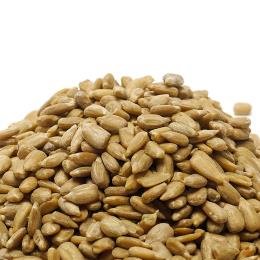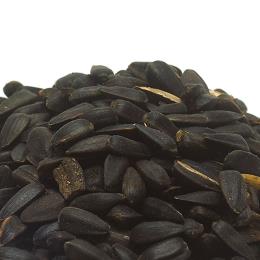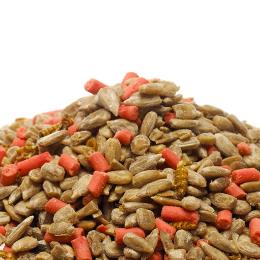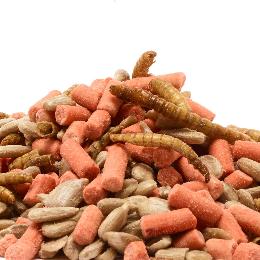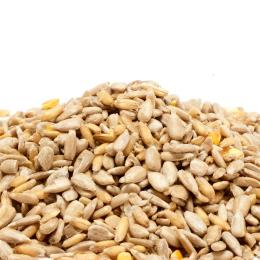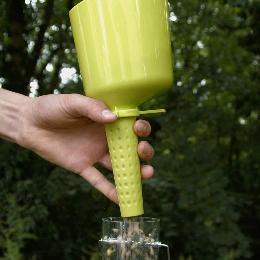Unhappy with your item? We offer no-quibble free returns
Sourced through ethical and sustainable accreditations
£3.95 standard UK shipping, or free shipping over £40
Every purchase you make supports wildlife
Sunflower hearts & seeds
Sunflower hearts and sunflower seeds for birds are high in protein and healthy fats that provide vital nutrition for most bird species — so why not fill your feeder? Choose from our range of black sunflower seeds, our no mess mix of sunflower hearts, grains and seeds, our ever popular premium sunflower hearts, and our Favourites blend of sunflower hearts, suet pellets and mealworms. When you buy bird food from RSPB you can count on:
- Rich nutrition for healthy birds.
- Premium quality straights and mixes which can be fed all year round.
- Our sunflower hearts and seeds are Fair To Nature approved, meaning they are produced on farms that meet rigorous conservation standards which allow wildlife to flourish.
Help support RSPB's vital conservation work by buying bird food. Every purchase you make supports projects helping wildlife thrive locally and around the world. See also our full range of bird seed for wild birds
Sunflower hearts & sunflower seeds FAQs
What is the difference between sunflower seeds and sunflower hearts?
Sunflower hearts are sunflower seeds that have the husk and outer shell removed, which means sunflower hearts cause less mess in your garden when birds come to feed, and birds use less energy when feeding.
Can you put sunflower seeds in a bird feeder?
Sunflower seeds attract a wide variety of birds, which makes them a great choice for most outdoor bird feeders. If food takes days to clear, reduce the amount you are offering, since old food may harbour pathogens. It is also really important that we clean our feeders weekly to prevent the spread of infectious diseases.
Are sunflower seeds healthy for birds?
Sunflower seeds are an excellent food source rich in oil and protein, which are beneficial for birds. Just like humans, birds benefit from a varied diet. As well feeding on sunflower seeds, garden birds will naturally forage a mixed diet including seeds, insects and fruits. It can also help birds to offer a variety of different bird food in your garden, e.g. peanuts and seed mixes.
For more information read our guide on what birds eat — this will help you understand foods to use and avoid.
